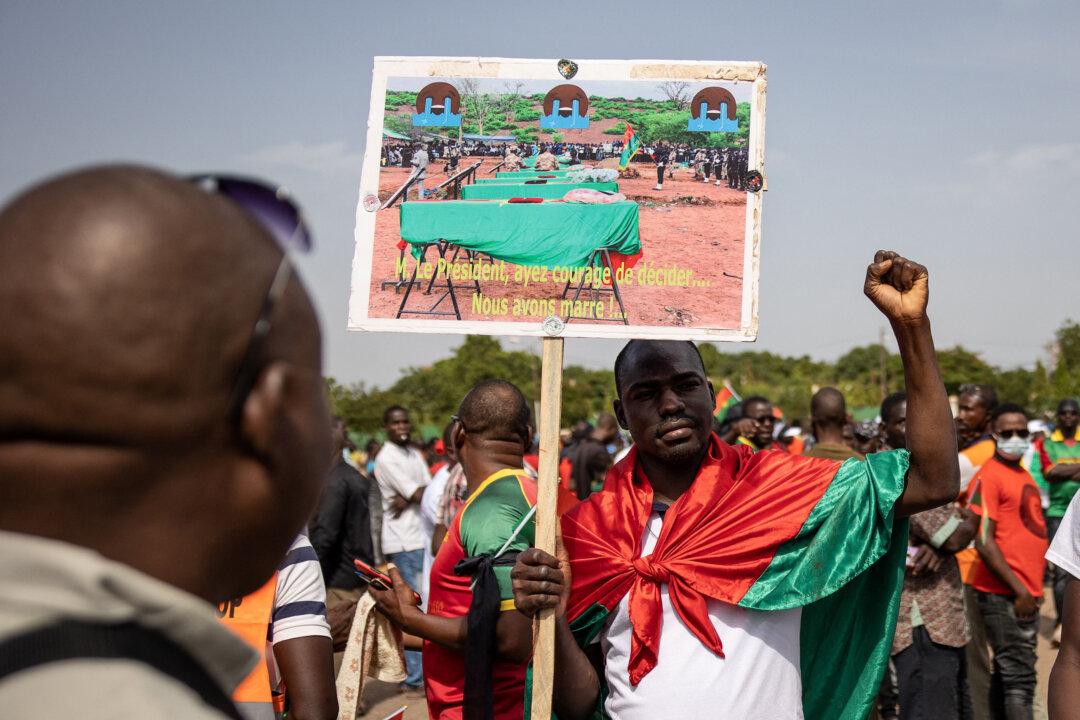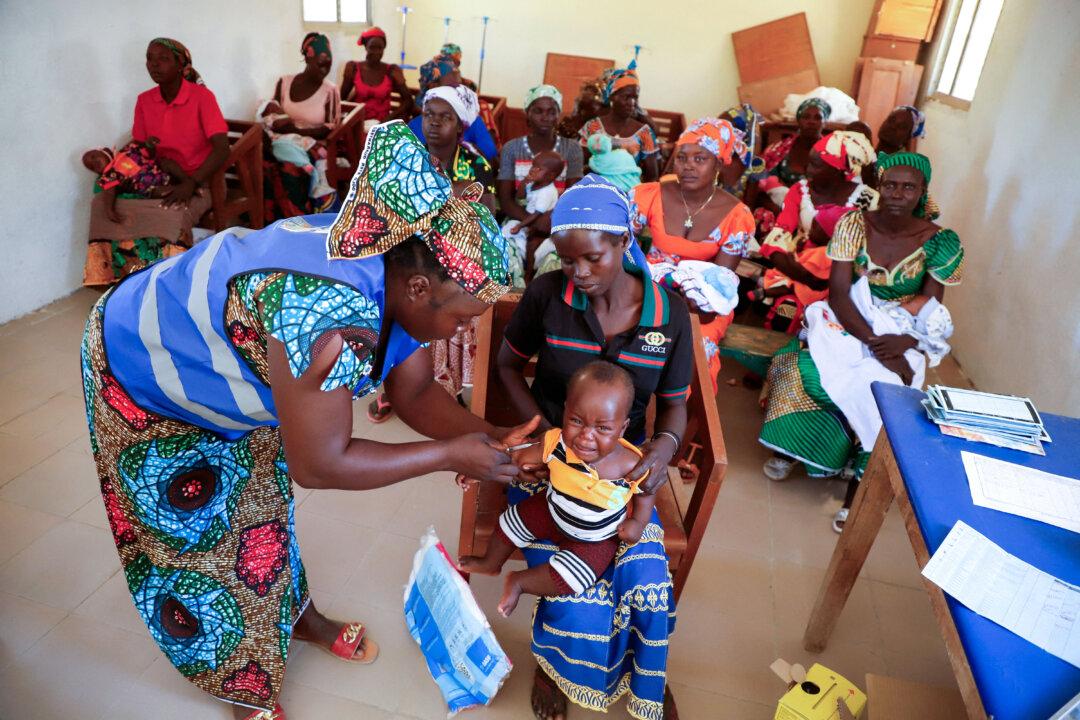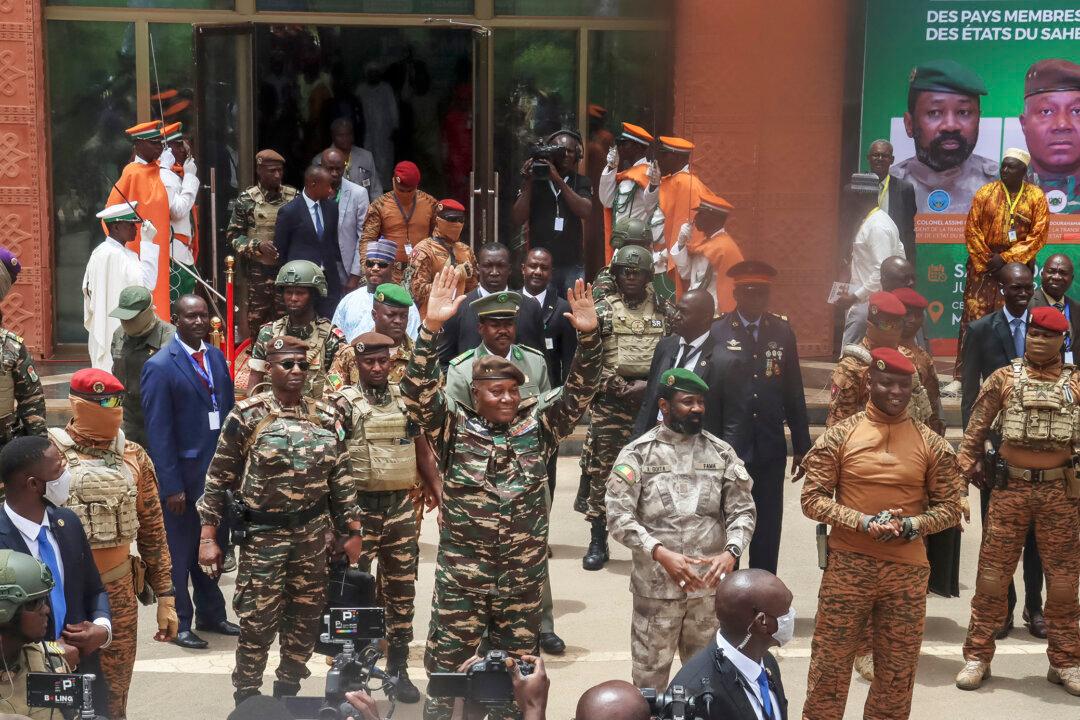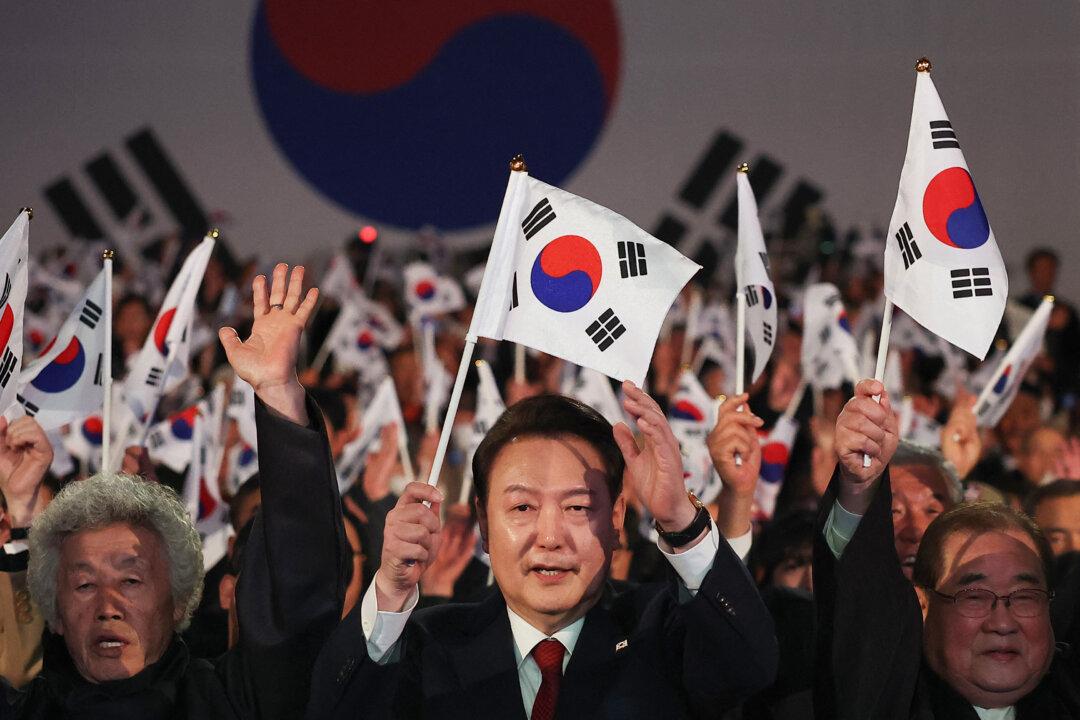An attack by unidentified assailants in northern Burkina Faso on army and volunteer defense forces on April 15 left 40 people dead and 33 others wounded, the West African nation’s transitional leadership confirmed in a statement.
Africa News
Featured
Jihadist Attacks in Burkina Faso Kill More Than 80 People as Security Situation Worsens

A demonstrator holds a placard during a march called by the opposition to protest against the security situation worsening and asking for a response to jihadist attacks, in Ouagadougou, Burkina Faso, on July 3, 2021. Olympia de Maismont/AFP via Getty Images
|Updated:




